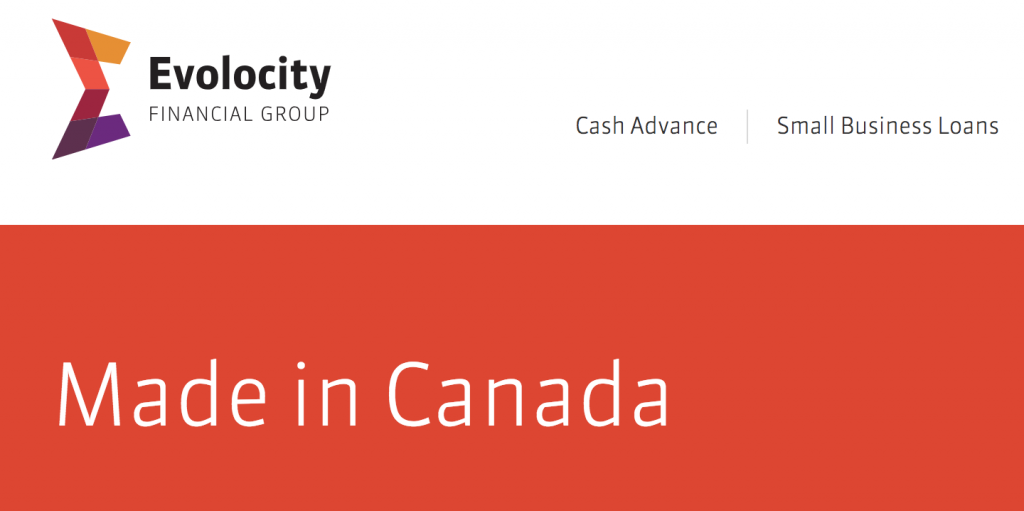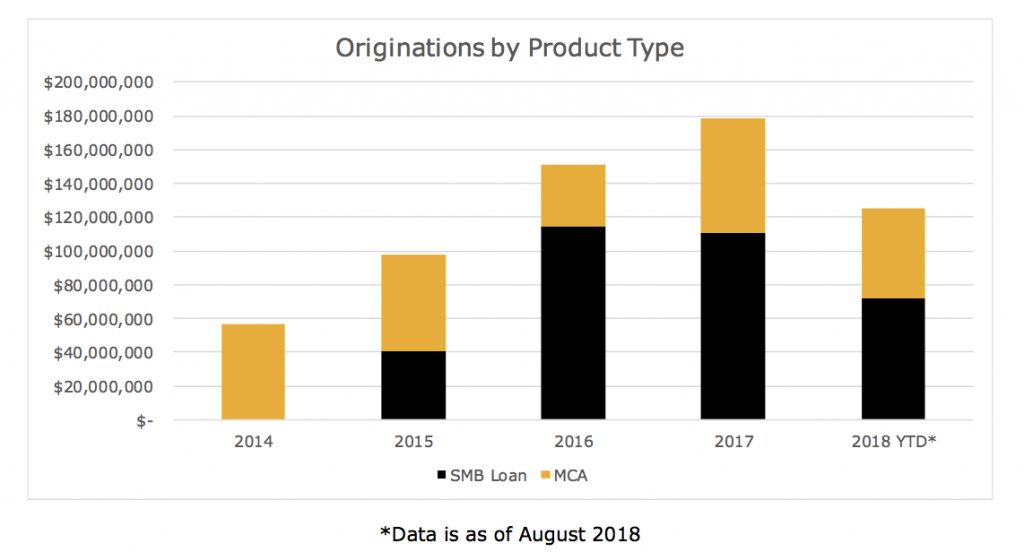Trump Administration Criticizes Postal Banking Concept
December 9, 2018 Earlier this week, a Trump administration report diminished the idea of having the United States Postal Service take on the role of a bank.
Earlier this week, a Trump administration report diminished the idea of having the United States Postal Service take on the role of a bank.
“Given the USPS’s narrow expertise and capital limitations, expanding into sectors where the USPS does not have a comparative advantage or where balance sheet risk might arise, such as postal banking, should not be pursued,” the report states.
This argument – that the USPS has no experience in banking – is the same that many banks presented when the idea was introduced in a 2015 report from the Office of the Inspector General. According to a June 2017 story in Tearsheet, a financial publication, those in favor of the idea of postal banking think that it could be a way for millions of unbanked or underbanked Americans to gain access to financial services. It could also create a new revenue stream for the perennially unprofitable USPS. (The USPS reported a net loss of $3.9 billion in fiscal year 2018, its 12th straight year of net losses.)
To those opposed to the idea, this would place a burden on an already struggling system, and would be unprofitable. While postal banking has the support of a number of high-ranking democrats, including Senator Elizabeth Warren of Massachusetts and Senator Kirsten Gillibrand of New York, postal bank has a surprising opponent: the National Council of Postal Credit Union (NCPCU).
According to a story in the Credit Union Journal, NCPCU board chair and CEO of Signature Federal Credit Union Becca Cuddy said, “Any new competition in the financial field is a threat to postal credit unions.” She suggested that a better strategy might be for third parties – possibly including banks – to partner with postal credit unions or the NCPCU “rather than try to reinvent the wheel.”
It is worth noting that postal banking did exist in the U.S. from 1911 to 1966. And according to the Pew Charitable Trusts, there are currently over 1.6 billion postal bank accounts, many in developed economies such as Japan, Brazil, France and Switzerland.
Factoring Still Slow to Modernize, Say Industry Leaders
December 6, 2018
“There were no factoring companies online when we started [in 2013],” said Eyal Lifshitz, CEO of BlueVine.
That may be true. Lifshitz has become a thought leader in the factoring world, known for creating a company, BlueVine, that introduced an online-only factoring product. When deBanked asked Lifshitz yesterday if he saw other factoring companies embracing technology, he was reluctant to speak about competitors. But he said, “We’re not seeing as much movement from traditional factoring companies…there have been some attempts of traditional factoring companies to move in [the technology] direction, but we haven’t seen something major happening.”
A leading U.S. factor attorney who asked not to be named, echoed this sentiment, albeit more forcefully.
 “It’s painful how little change there has been among factors,” the lawyer said. “They have been comfortable for far too long.”
“It’s painful how little change there has been among factors,” the lawyer said. “They have been comfortable for far too long.”
When asked if BlueVine is the only company in the factoring space that is technologically advanced, he said there is one other that comes to mind, and that is LSQ, based in Maitland, FL.
“They’ve always been ahead of the curve and early adopters of technology,” he said of LSQ. “They’re just more quiet about it than BlueVine.”
BlueVine very much identifies itself as a technology company first, according to Lifshitz.
“We started on day 1 as being 100 percent online, so it’s a different approach. A different DNA,” Lifshitz said.
While BlueVine started in 2013 offering only a factoring product, the company later introduced a line of credit product which now accounts for a little more than half of its business. Lifshitz noted that the flexibility of the line of credit product is very appealing to many of their clients.
With factoring, the customer can only get as much money as the customer has invoices for. But with the line of credit, the customer can get funds – up to $250,000 – advanced to them as they need it. So, increasingly, it’s the companies looking for amounts greater that $250,000 that will opt for BlueVine’s factoring product, Lifshitz said.
At the Money 20/20 conference at the end of October of this year, Lifshitz said that BlueVine will launch a third product in 2019, and possibly a fourth as well.
“We are focused on products that are hard to do,” Lifshitz said. “The magic is how to take a product that is complex to deliver from an underwriting standpoint, from an infrastructure standpoint, and from an automation standpoint, and deliver it to our small business customer in an [easy] way.”
OnDeck Expands Canadian Business with Merger
December 5, 2018 OnDeck announced today that it has entered into an agreement to merge its Toronto-based Canadian business with Evolocity Financial Group (Evolocity), an online small business funder headquartered in Montreal. OnDeck will have majority ownership of Evolocity and the combined entity will be rebranded as OnDeck Canada.
OnDeck announced today that it has entered into an agreement to merge its Toronto-based Canadian business with Evolocity Financial Group (Evolocity), an online small business funder headquartered in Montreal. OnDeck will have majority ownership of Evolocity and the combined entity will be rebranded as OnDeck Canada.
“The combination of OnDeck’s Canadian operations with Evolocity will create a leading online platform for small business financing throughout Canada and represents a significant investment in the Canadian market,” said Noah Breslow, Chairman and CEO of OnDeck. “There is an enormous need among underserved Canadian small businesses to access capital quickly and easily online.“
According to the announcement, “the transaction will combine the direct sales, operations, and local underwriting expertise of the Evolocity team with the marketing and business development capabilities of the OnDeck team.”
As part of the merger, Neil Wechsler, who is the CEO of Evolocity, will become the CEO of OnDeck Canada. And the management team will include Evolocity co-founders David Souaid as Chief Revenue Officer and Harley Greenspoon as Chief Operating Officer. OnDeck Canada will be governed by a Board of Directors chaired by Breslow and composed of existing OnDeck and Evolocity management.
 Currently, OnDeck offers a variety of loans up to $500,000 and lines of credit up to $100,000. Evolocity offers small business loans and an MCA product, from $10,000 to $300,000. deBanked inquired with OnDeck to see if OnDeck Canada will retain the MCA product from Evolocity, but has yet to hear back. Since OnDeck entered the Canadian market in 2014, it has originated over CAD $200 million in online small business loans there. Evolocity has provided over CAD $240 million of financing to Canadian small businesses since 2010.
Currently, OnDeck offers a variety of loans up to $500,000 and lines of credit up to $100,000. Evolocity offers small business loans and an MCA product, from $10,000 to $300,000. deBanked inquired with OnDeck to see if OnDeck Canada will retain the MCA product from Evolocity, but has yet to hear back. Since OnDeck entered the Canadian market in 2014, it has originated over CAD $200 million in online small business loans there. Evolocity has provided over CAD $240 million of financing to Canadian small businesses since 2010.
Investment in online small business lending in Canada is growing. IOU Financial, a Montreal-based small business funder that primarily funds American small businesses, told deBanked last month that they made a concerted marketing effort in the third quarter to reach Canadian small business owners. Meanwhile, Thinking Capital, a Canadian online small business funder, announced in July the launch of BillMarket, a service that provides Canadian small businesses with a credit grade (A through E), making it easier for them to get funded.
“BillMarket represents a cash flow revolution for the Canadian small business market,” said Jeff Mitelman, CEO of Thinking Capital, which has roughly 200 employees between its Toronto and Montreal offices.
 According to a recent Canadian government report cited by OnDeck in its announcement today, there are 1.14 million small businesses in Canada that represent 97.9 percent of all businesses in the country. Also, small businesses employed over 8.2 million people in Canada, or 70.5 percent of the total private workforce.
According to a recent Canadian government report cited by OnDeck in its announcement today, there are 1.14 million small businesses in Canada that represent 97.9 percent of all businesses in the country. Also, small businesses employed over 8.2 million people in Canada, or 70.5 percent of the total private workforce.
Evan Marmott, founder of Canadian small business funder, Canacap, told deBanked earlier this year that unlike the saturated small business market in the U.S., the Canadian small business market is still ripe for growth. Not only this, he said that while the market is smaller in Canada, the default rates are generally lower and he found that Canadian merchants do less shopping around. He also said he has seen less fraud in Canada than in the U.S.
“For brokers, while commissions are lower, you could actually speak to business owners who are not being bombarded with calls [as they are in the U.S.] and have a much higher closing rate,” Marmott said.
Evolocity has 70 full-time employees and offices in Montreal, Vancouver and Marham, in the Toronto area. OnDeck has funded over $10 billion to small businesses and became a public company (NYSE: ONDK) in 2014. OnDeck is headquartered in New York.
“We are excited to join forces with OnDeck…to enhance our best in class digital financing solutions to small businesses across Canada,” said Wechsler, Evolocity CEO. “Additionally, this transaction will augment our data science and analytics capabilities to help deliver an unparalleled merchant experience.”
SoFi CEO Reiterates Company’s Low Appetite for Risk
December 3, 2018 In an interview late last week on Jim Cramer’s “Mad Money” TV show, SoFi CEO Anthony Noto said that when he took over as CEO in March, his number one priority was focusing on “quality of loans over quantity.”
In an interview late last week on Jim Cramer’s “Mad Money” TV show, SoFi CEO Anthony Noto said that when he took over as CEO in March, his number one priority was focusing on “quality of loans over quantity.”
“We have really strong risk controls,” Noto told Cramer. “Knowing that the [changed] interest rate was coming, we wanted to focus on per-loan economics for two reasons: one, we wanted the loans that we created to be great investments for our asset-backed security investors, but also if we keep them on our balance sheet.”
SoFi started out offering college loans and has since developed a wide product offering, including mortgages, personal loans, wealth management and a product designed for parents paying for their children’s education.
During an interview in October at Money 20/20, Noto told the audience that he was accepted to Ivy League colleges, but didn’t take out any loans because he was uncertain if he could afford to pay them back. Instead, because of his academic and sports accomplishments, he was recruited to West Point, the elite U.S. military academy where he attended for free.
SoFi’s typical customer has an average FICO score of 720, Noto said at Money 20/20.
“Higher interest rates have made our underwriting more conservative,” he said.
He also said at Money 20/20 that he believes SoFi ought to eventually open some physical locations, like ATMs, for people who get paid in cash. Additionally, the release of a digital currency product is likely on the horizon in 2019, Noto said.
Earlier last week, Cramer pointed to some non-bank lenders, like Quicken Loans, as posing a risk to the broader economy. But he was supportive of SoFi, telling Noto that he signed up for a SoFi account in 10 seconds.
“It was quick and easy, which is just what [millennials] want,” Cramer said.
Numerated to Improve Online Lending for Regional Banks
November 30, 2018 On Wednesday, Numerated announced that it had closed $8 million in financing, bringing its total to $17 million. Numerated is a platform that helps banks make automated credit and lending decisions.
On Wednesday, Numerated announced that it had closed $8 million in financing, bringing its total to $17 million. Numerated is a platform that helps banks make automated credit and lending decisions.
“We’ve seen a tipping point in the market, with banks across the U.S. focused on digitally serving their business segments and out-competing national and global lenders,” said Numerated founder and CEO Dan O’Malley. “And we look forward to continuing to develop a platform that drives real growth for them.”
Like the recently launched ODX, which grew out of OnDeck’s success helping Chase with online lending, Numerated was first developed in 2015 by Eastern Bank to improve its online lending capabilities. In 2017, it was spun out as an independent company by O’Malley, who had been Chief Digital Officer at Boston-headquartered Eastern Bank.
A new investor who contributed to Numerated’s latest round is Raj Date, the founding Deputy Director of the Consumer Financial Protection Bureau (CFPB) and the current Managing Director at Fenway Summer Ventures. Date will also join Numerated’s Advisory Board.
“The industry has been sorely lacking a solution designed specifically for community and regional banks to compete and win against giant global banks and alternative lenders in business banking,” Date said. “Numerated has quickly grown to become the market leader in business lending with its real-time fintech platform, and I look forward to advising the company as it continues its growth.”
While OnDeck’s ODX and Numerated have similar offerings and objectives – to help banks become faster and more competitive online lenders – Numerated’s focus seems to be on servicing smaller regional banks. Some of its clients, according to its website, include Seacoast Bank, Franklin Synergy Bank, Eastern Bank and MidFirst bank.
Meanwhile, ODX services Chase and it announced in October that its first client as an independent entity was PNC Bank.
“We’re looking at the top 200 banks first,” OnDeck CEO Noah Breslow told deBanked in October.
Numerated was launched in 2017 by O’Malley and is based in Boston.
What We Learned About Credibly From Credibly’s Securitization
November 29, 2018Today, Credibly CEO Ryan Rosett told deBanked that the company’s October securitization will be used, in part, to roll out its new Market Expansion Product (MXP), which will allow Credibly to service merchants with FICO scores as low as 500 and those that have been in business for less time.
“We believe the MXP will open up the funnel by allowing us to serve business owners that we previously couldn’t,” Rosett said.
Kroll Bond Rating Agency assigned preliminary ratings to three classes of notes as part of Credibly’s first securitization. Rosett said this securitization follows a large warehouse line of credit from SunTrust Bank which is also the primary underwriter, of the securitization.
In addition to the new MXP product, Rosett said that Credibly intends to launch a line of credit product in 2019. Currently, Credibly provides merchant cash advances up to $150,000, business expansion loans up to $250,000, with terms up to 24 months, and working capital loans up to $250,000 with terms up to 17 months. Rosett said that the company’s working capital loan is its most popular product.
In an interview yesterday with Benzinga, Rosett said that he has seen a strong increase in demand for Credibly’s products and that they are currently evaluating over 10,000 applications per month.

2017 net revenue before provisions: $33 million
2017 earnings: $1.4 million
Total shareholder equity: $18.7 million
Lifetime funding volume: $700+ million
Raw # of fundings: 17,000+
Majority owned by: Flexpoint Ford
# of employees: 140
Notable deal: Acquired the rights to service BizFi’s $250 million MCA portfolio in August 2017
Provides: Small business loans (in 37 states and D.C.) and merchant cash advances
Founded: 2010 by co-CEOs Edan King and Ryan Rosett
Generates deals via: Brokers and inside sales
BFS Capital Announces New CEO
November 28, 2018 BFS Capital announced today that it has appointed Mark Ruddock as CEO, effective immediately. Co-founder Marc Glazer, who has served as interim CEO since the departure of Michael Marrache earlier this year, will be Chairman.
BFS Capital announced today that it has appointed Mark Ruddock as CEO, effective immediately. Co-founder Marc Glazer, who has served as interim CEO since the departure of Michael Marrache earlier this year, will be Chairman.
“I sense there is tremendous potential in this firm,” Ruddock told deBanked. “It has in its DNA an innate understanding of the needs of small business and I think the opportunity for it is to leverage significant increases in data science and technology to help scale and deliver on this potential.”
Most recently, Ruddock served as interim CEO for nearly two years at 4finance, one of the largest European consumer focused online lenders, with more than 3,000 employees and customers across 17 countries. Ruddock said that at 4finance, every day they would issue more than 16,500 loans and make about 22,500 risk decisions. And the entire process was automated.
“There is an opportunity to achieve real scale [in small business lending] through the use of leading edge technology,” Ruddock said, and that is what he intends to do at BFS Capital. Ruddock is relocating to Florida from Berlin, Germany.
Glazer will remain a key part of the operations at BFS Capital.
“One of the biggest assets this company has is Marc Glazer,” Ruddock said. “The two of us see this very much as a joint endeavor moving forward…and I’m going to hold him to remaining actively involved here.”
Their offices are right beside each other, Ruddock said.
“[Ruddock] has an outstanding track record of transforming financial services and technology companies by accelerating their innovation and business growth,” Glazer said. “His diversity of experience, from founder to growth stage executive, across a wide variety of industries and geographies makes him an exceptional choice for BFS Capital at such a pivotal stage in our evolution.”
Ruddock was the founder and CEO of INEA Corporation, an enterprise software firm focused on the financial services industry that was acquired in 2005. Following INEA, he became CEO of mobile software company Viigo, whose flagship app became one of BlackBerry’s most downloaded apps of all time by the time the company was acquired by RIM (Blackberry) in 2010. He held a number of other positions before becoming interim CEO at 4finance in 2017.
Headquartered in Coral Springs, FL, BFS Capital funds American and Canadian small businesses with merchant cash advances and business loans. Through its affiliate, Boost Capital, the company also provides funding to small businesses in the UK. Since 2002, BFS Capital has funded more than $1.9 billion. The company also has offices in New York, California and the UK.
IOU Partners with FINSYNC to Fuel Growth
November 27, 2018 Montreal-based IOU Financial announced yesterday that it is partnering with FINSYNC in an effort to improve their customers’ experience and broaden access to new customers. FINSYNC is a cash flow management software and platform that allows businesses to collect income, pay bills, process payroll, automate accounting, and access financing through FINSYNC’s Lending Network.
Montreal-based IOU Financial announced yesterday that it is partnering with FINSYNC in an effort to improve their customers’ experience and broaden access to new customers. FINSYNC is a cash flow management software and platform that allows businesses to collect income, pay bills, process payroll, automate accounting, and access financing through FINSYNC’s Lending Network.
“FINSYNC’s innovative cash flow management solution helps business owners better assess the opportunity to access working capital based on past and projected cash flow,” said Christophe Choquart, VP of Strategic Partnerships at IOU Financial. “This is a totally new way to [support] growing businesses.”
FINSYNC provides almost all financing-related services except for the actual financing. According to its website, FINSYNC has partnerships with a number of other alternative funders, including OnDeck, Breakout Capital, BFS Capital and The Business Backer.
“This partnership greatly enhances the convenience of applying for working capital,” said Robert Gloer, President and COO of IOU Financial. “It gives merchants insight into what a cash infusion would look like [before they take out a loan.”
Through this partnership, IOU Financial’s marketing efforts will introduce potential merchants to FINSYNC’s payment, payroll and accounting services, while FINSYNC will offer IOU Financial an enhanced user experience, according to IOU Financial CEO Philip Marleau. He said that, for now, neither company is exchanging money with one another. It is purely a mutually beneficial partnership.
IOU Financial offers business loans of up to $300,000 to small business merchants in the U.S. and Canada. The company, which is traded publicly on the Toronto Stock Exchange, had a strong third quarter, with $36.1 million in originations, an 85% increase from the prior year. The lender’s average loan is $100,000 with a 12 month term, although they do offer terms up to 18 months.
Founded in 2009 by Gloer and CEO Phil Marleau, the company also has an office in Atlanta and has a total of about 40 employees.






























